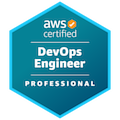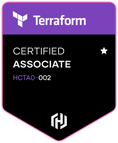What is The Phoenix Framework?
The Phoenix Framework is for building scalable, fault-tolerant, and maintainable web applications. It is built on top of the Elixir programming language and uses the Erlang VM to provide a high level of concurrency and fault tolerance.
Phoenix has gained popularity for its focus on productivity and ease of development, making it an attractive option for building modern web applications. It follows the Model-View-Controller (MVC) pattern and provides features such as routing, templating, database integration, and websocket support out of the box.
Phoenix also includes unique features like channels, which allow for real-time communication between clients and servers, and Presence, which enables real-time tracking of user presence. Its performance is a standout feature. Built on the Erlang VM, Phoenix applications can handle large amounts of traffic while remaining responsive under heavy loads. By leveraging the actor model, Phoenix enables lightweight concurrency, optimizing system resource use.
LiveView: A Game-Changing Feature
Elixir Phoenix also introduces a groundbreaking feature called LiveView, which allows developers to build real-time, reactive user interfaces using server-side Elixir code. With LiveView, developers can write server-side code that updates the browser in real time, eliminating the need for client-side JavaScript. This simplifies development, speeds up development time, and makes maintaining applications easier over the long term.
Comparing Popular Web Frameworks: Phoenix Framework, Laravel, and Express.js
The table below compares key features of three popular web frameworks: Phoenix Framework, Laravel, and Express.js.
| Feature | Phoenix Framework | Laravel | Express.js |
|---|---|---|---|
| Authentication | Built-in | Built-in | Third-party |
| Code Generation | Yes | Yes | No (via 3rd party) |
| Community | Growing | Large | Large |
| Concurrency | Excellent | Good | Moderate |
| Language | Elixir | PHP | JavaScript |
| Learning Curve | Moderate | Moderate | Easy |
| MVC Architecture | Yes | Yes | Yes |
| Real-time Features | Built-in | Third-party | Third-party |
| Created By | Chris McCord | Taylor Otwell | TJ Holowaychuk |
| Maintained By | Elixir Core Team | Taylor Otwell | Node.js Foundation |
6 Reasons Why You Should Choose Phoenix Framework
Fast and Scalable: Phoenix is built on the Erlang Virtual Machine, known for its concurrency and fault tolerance. Phoenix applications handle high traffic efficiently and are designed to scale as user and feature demands grow.
Real-Time Communication: With built-in WebSocket and channel support, Phoenix enables real-time client-server communication, ideal for apps like chat, multiplayer games, and collaborative tools.
Productivity: Phoenix provides productivity-enhancing features like code generation tools and database integration, allowing developers to focus on building features instead of repetitive boilerplate.
Maintainability: By following the MVC architecture and embracing functional programming principles, Phoenix promotes organized, maintainable, and bug-resistant code.
Testing: Phoenix includes a built-in testing framework to ensure your application runs as expected and to catch bugs early in development.
Community: Phoenix has a rapidly growing, active community that provides extensive resources, support, and third-party libraries to simplify application development.
Our Phoenix Framework Development Process
At Space-Rocket, we believe that a well-defined development process is key to delivering successful projects. Our Phoenix Framework development process ensures every project meets high standards of quality, performance, and usability. Our process includes:
- Consultation and Requirements Gathering: We work closely with you to understand your business needs and goals, gathering requirements for your Phoenix Framework application.
- Planning and Architecture: We create a detailed plan and architecture optimized for scalability, performance, and user experience.
- Phoenix Framework Component and Page Development: We develop components and pages using modern techniques, emphasizing quality, maintainability, and scalability.
- Continuous Integration (CI): We regularly integrate code changes to catch and address issues early.
- Continuous Deployment (CD): We automate deployment for efficient updates to your application in the target environment.
- Ongoing Maintenance and Support: We provide continuous support to ensure the long-term performance of your application.
Our Promise to Clients
We are committed to delivering the highest quality Phoenix Framework development services to our clients. With our experienced Phoenix Framework developers, we guarantee every project will meet the highest standards.
Get in touch with Space-Rocket today to discuss your Phoenix Framework development needs!


